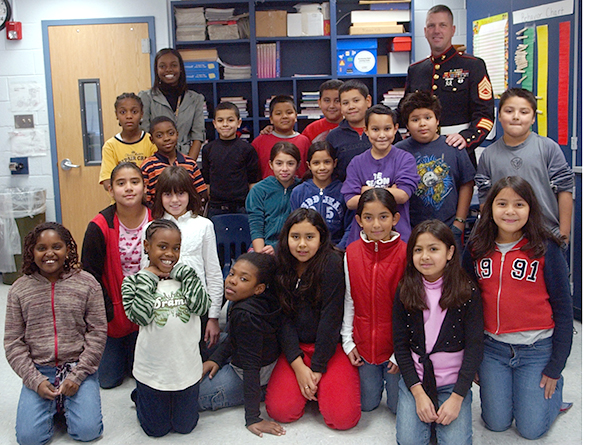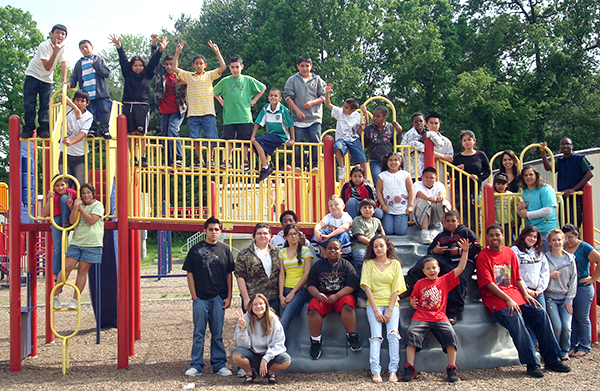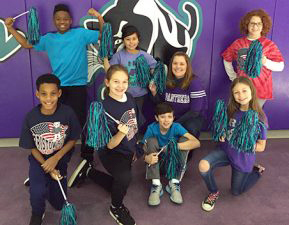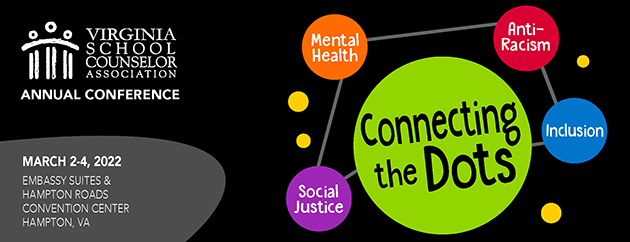
Proactive and Preventative Outside-the-Box Thinking Garners Results at the Elementary Level
By Melissa Leischner, NCC | November 2021
Promoting racial justice and diversity starts at the elementary level with careful consideration for how to best assist students through purposeful experiences. Providing opportunities to assist students as an alternative to discipline is an important first step. Facilitating business partnerships, local mentoring programs and creative programs gives students the ability to gain meaningful involvement in schools.
When I was in my second year as a school counselor at an elementary school where many students did not have positive role models at home, I contacted the local Army and Marine Corps base, forming partnerships with each. I looked at our behavior data and paired the military mentors with the students struggling the most with school discipline. The mentors worked with the selected students on schoolwork and provided them with a positive role model. Through these partnerships, students performed better socially and academically.

A few years later, I partnered with a local high school and started an after-school program for students. This mutually beneficial program focused on positive peer relationships and encouraged the high school students to see themselves as leaders who could make a difference. Through this tutoring and play program, the number of discipline referrals decreased, and academic grades improved. These proactive and preventative measures successfully helped many students to see themselves differently.

 As an added school counseling group for those experiencing difficulties, I paired students with positive peer role models in their grade and wrote short plays and musicals that they worked together to perform during lunch (topics included friendship and bullying). Discipline referrals declined and peers were able to see students in a positive light as leaders teaching lessons on the stage.
As an added school counseling group for those experiencing difficulties, I paired students with positive peer role models in their grade and wrote short plays and musicals that they worked together to perform during lunch (topics included friendship and bullying). Discipline referrals declined and peers were able to see students in a positive light as leaders teaching lessons on the stage.
Recognizing the importance of celebrating differences to promote inclusivity, I partnered with parents and community members to facilitate activities such as heritage and multicultural nights. Under the direction of the music teacher, first graders sang cultural songs and other grade levels learned cultural dances in music to share. Students also had the opportunity to write or draw how having many different people at our school makes our school better, and we posted their work on a bulletin board for all to see. Whether students were performing in a fashion show or sampling food and music from other cultures, all in attendance had a positive and inclusive experience as evidenced by surveys following the event.
At the division level, Prince William County Schools Office of Student Services established a Diversity, Justice and Anti-Bias Student Services Committee on Microsoft Teams that K–12 school counselors can participate in. One of the purposes of this group is to contribute professional articles, resources and practical school counseling ideas for the weekly newsletter to give counselors tools to turn awareness into action.
School counselors can impact change through proactive and preventative measures to achieve systemic change in the school systems. Creative thinking and collaborative support can truly make a difference in embedding positive practices that can help in achieving inclusive and more equitable schools.
Melissa Leischner, NCC, is a school counselor at Bristow Run Elementary in Prince William County and a member of the VSCA Board of Directors.

When I was in my second year as a school counselor at an elementary school where many students did not have positive role models at home, I contacted the local Army and Marine Corps base, forming partnerships with each. I looked at our behavior data and paired the military mentors with the students struggling the most with school discipline. The mentors worked with the selected students on schoolwork and provided them with a positive role model. Through these partnerships, students performed better socially and academically.

A few years later, I partnered with a local high school and started an after-school program for students. This mutually beneficial program focused on positive peer relationships and encouraged the high school students to see themselves as leaders who could make a difference. Through this tutoring and play program, the number of discipline referrals decreased, and academic grades improved. These proactive and preventative measures successfully helped many students to see themselves differently.

 As an added school counseling group for those experiencing difficulties, I paired students with positive peer role models in their grade and wrote short plays and musicals that they worked together to perform during lunch (topics included friendship and bullying). Discipline referrals declined and peers were able to see students in a positive light as leaders teaching lessons on the stage.
As an added school counseling group for those experiencing difficulties, I paired students with positive peer role models in their grade and wrote short plays and musicals that they worked together to perform during lunch (topics included friendship and bullying). Discipline referrals declined and peers were able to see students in a positive light as leaders teaching lessons on the stage.Recognizing the importance of celebrating differences to promote inclusivity, I partnered with parents and community members to facilitate activities such as heritage and multicultural nights. Under the direction of the music teacher, first graders sang cultural songs and other grade levels learned cultural dances in music to share. Students also had the opportunity to write or draw how having many different people at our school makes our school better, and we posted their work on a bulletin board for all to see. Whether students were performing in a fashion show or sampling food and music from other cultures, all in attendance had a positive and inclusive experience as evidenced by surveys following the event.
At the division level, Prince William County Schools Office of Student Services established a Diversity, Justice and Anti-Bias Student Services Committee on Microsoft Teams that K–12 school counselors can participate in. One of the purposes of this group is to contribute professional articles, resources and practical school counseling ideas for the weekly newsletter to give counselors tools to turn awareness into action.
School counselors can impact change through proactive and preventative measures to achieve systemic change in the school systems. Creative thinking and collaborative support can truly make a difference in embedding positive practices that can help in achieving inclusive and more equitable schools.
Melissa Leischner, NCC, is a school counselor at Bristow Run Elementary in Prince William County and a member of the VSCA Board of Directors.
